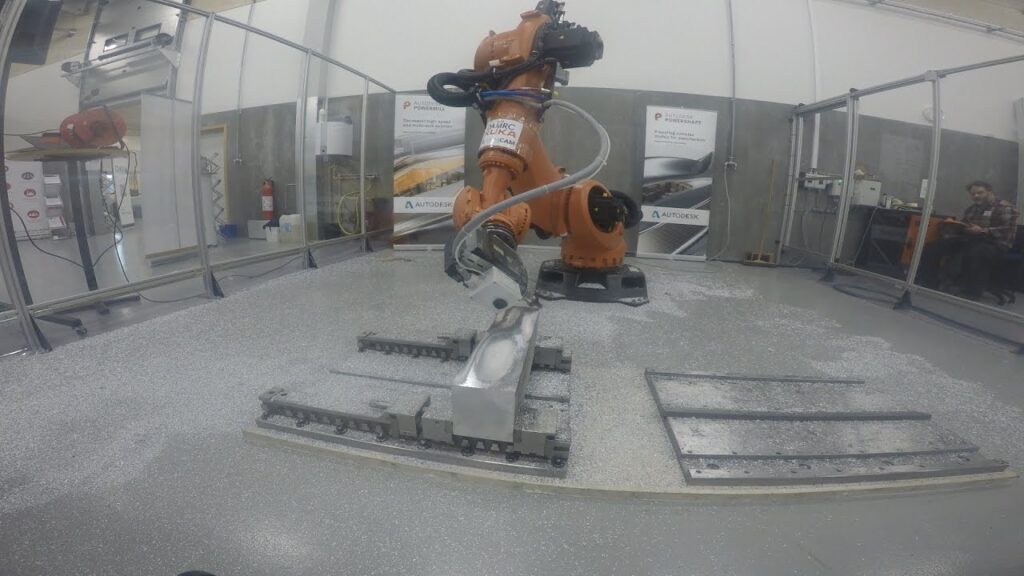Industrial Robots in Manufacturing: Revolutionizing the Production Line
The field of manufacturing has seen tremendous advancements in recent years, especially with the introduction of industrial robots. These robots have proven to be a game-changer, providing increased efficiency and productivity in various industries. Denmark, known for its innovation and technological advancements, has been at the forefront of incorporating industrial robots into its manufacturing processes. In a recent collaboration, Danish partners, DeltaCAM and DAMRC (Danish Advanced Manufacturing Research Center), have successfully demonstrated the potential of industrial robots in revolutionizing the production line.
The use of industrial robots in manufacturing offers several advantages over traditional methods. One of the biggest benefits is the automation of repetitive and mundane tasks, allowing human workers to focus on more complex and strategic activities. Industrial robots are not only capable of performing monotonous tasks with precision, but they can also work at a much faster pace, significantly increasing productivity.
DeltaCAM, a leading Danish manufacturing company, recognized the potential of industrial robots and sought to collaborate with the DAMRC to explore new avenues in the field. Their combined efforts resulted in the development of a state-of-the-art production line that seamlessly integrates industrial robots. This partnership aimed to not only improve efficiency but also reduce costs for manufacturing companies.
One of the key areas where industrial robots have shown remarkable success is in freeing up expensive CNC machinery. Traditionally, CNC (Computer Numerical Control) machines have been used extensively in manufacturing processes, but they often come with high costs, long setup times, and limited flexibility. However, with the introduction of industrial robots, these limitations can now be overcome.
The collaboration between DeltaCAM and DAMRC has enabled the implementation of industrial robots that can take over the repetitive tasks previously handled by CNC machines. These robots are highly adaptable and can be reprogrammed to perform different tasks, allowing for greater flexibility in production. This shift not only reduces costs associated with CNC machinery but also frees up valuable resources, enabling companies to allocate them to more critical areas of their operations.
Furthermore, the use of industrial robots in manufacturing has resulted in improved safety standards. By taking over physically demanding and hazardous tasks, robots can significantly reduce the risk of accidents in the workplace. This not only ensures the well-being of workers but also minimizes potential disruptions in the production line.
The benefits of industrial robots in manufacturing go beyond just efficiency and cost reduction. They also have a positive impact on product quality. With their high precision and accuracy, industrial robots can consistently produce products that meet the highest standards. This results in fewer defects and rejections, ultimately enhancing customer satisfaction and reducing waste.
Looking into the future, the collaboration between DeltaCAM and DAMRC is a clear indication of the direction manufacturing is heading. Industrial robots are expected to play an even more significant role in the industry, transforming the way products are manufactured. This technology is not limited to a specific sector but can be implemented across various industries, including automotive, electronics, pharmaceuticals, and more.
As the trend of utilizing industrial robots continues to grow, it is essential for manufacturing companies to adapt and embrace the change. The advantages they bring to the table are undeniable, and those who fail to adopt this technology may find themselves lagging behind their competitors. Industrial robots have the potential to reshape the manufacturing landscape, boosting efficiency, productivity, and overall profitability.
In conclusion, the collaboration between DeltaCAM and DAMRC highlights the potential of industrial robots in revolutionizing the production line. These robots provide numerous advantages, including increased efficiency, reduced costs, improved safety, and enhanced product quality. Furthermore, they offer a solution to the limitations of expensive CNC machinery, freeing up resources for more critical tasks. As the manufacturing industry embraces this technology, it is poised to witness significant advancements that will shape the future of production.
Industrial Robot
“Revolutionizing Manufacturing: The Efficiency of Industrial Robots Replacing Expensive CNC Machinery”


